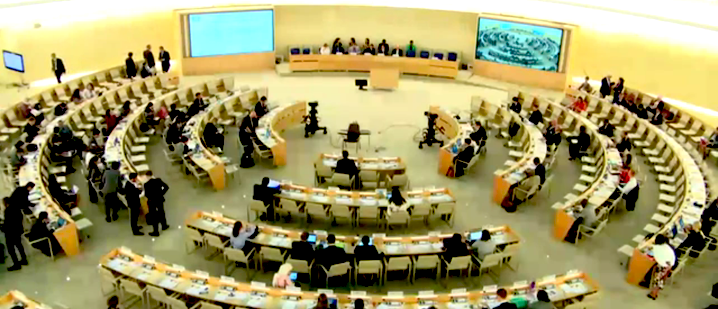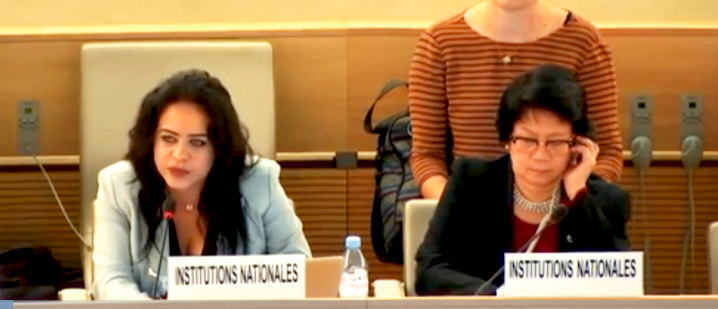CNDH statement on transitional justice before the Human Right Council

The National Human Rights Council (CNDH) participated in a clustered dialogue with Mr. Fabian Salvioli, UN Special Rapporteur on the promotion of truth, justice, reparation and guarantees of non-recurrence on 14 September 2018 in Geneva.
On this occasion, the CNDH shared the Moroccan experience in the fight against impunity, the establishment of trust, the preventive approach to non-repetition and cultural/memorial actions undertaken by Morocco.
The Moroccan Transitional Justice process aimed at resolving the serious human rights violations perpetrated in the past. The CNDH stated that several programs relating this area were launched, particularly on individual and community reparations, social reintegration, administrative and financial situation regularization and medical coverage of victims and their dependants… etc.
Moreover, the CNDH highlighted that several recommendations of the Moroccan Truth Committee (IER) were entrenched in the Constitution including those relating the criminalization of serious human rights violations.
The CNDH also conducted memorial and cultural actions which were in line with the findings of the report published by the Special Rapporteur.
Memorial and cultural actions included the re-release of six fiction movies produced between 2000 and 2004. This action aimed to pay tribute to victims of gross human rights violations. Besides, the cemetery of victims of Casablanca 20 June 1981 unrest was inaugurated by the CNDH to commemorate all victims of serious human rights violations in Morocco.
The CNDH shed lights on the implementation of the program “Archives, History and Memory” which made it possible to transfer 22050 files to the Moroccan Institution specialized in archiving “Archive du Maroc”, a national institute specialized in archiving. The CNDH also informed that it will soon publish an assessment report on Morocco’s transitional justice.
 Mr. Fabian Salvioli took up his functions in May 2018. In his report, he reiterated his predecessor’s call for “a comprehensive approach to transitional justice anchored in standards for the redress of gross violations of human rights and serious violations of international humanitarian law, and the prevention thereof”. To this end, the Special Rapporteur intended “to further develop the work of the mandate, responding to the challenges currently faced in the field of transitional justice and in areas that are interconnected, but rarely coordinated with transitional justice efforts”.
Mr. Fabian Salvioli took up his functions in May 2018. In his report, he reiterated his predecessor’s call for “a comprehensive approach to transitional justice anchored in standards for the redress of gross violations of human rights and serious violations of international humanitarian law, and the prevention thereof”. To this end, the Special Rapporteur intended “to further develop the work of the mandate, responding to the challenges currently faced in the field of transitional justice and in areas that are interconnected, but rarely coordinated with transitional justice efforts”.






















